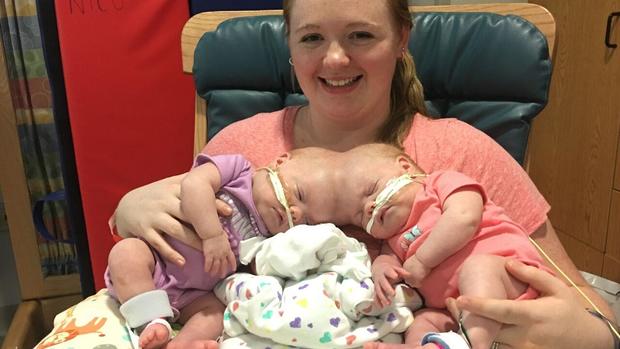Chilean conjoined twin improves despite sister's death
(CBS/AP) Doctors in Chile are hopeful that 10-month-old Maria Paz will recover from the separation surgery her sister did not survive. The girl, who was separated in a 20-hour procedure last Tuesday from her sister Maria Jose, was clinging to life yesterday, doctors said.
PICTURES - Conjoined twins: 40 amazing photos (GRAPHIC IMAGES)
But mere hours after her sister Maria Jose had died of general organ failure, Maria Paz woke up for the first time since last week's operation. Dr. Carlos Acuna of Luis Calvo Mackenna Hospital in Santiago called that "an excellent sign." He said the girl's condition is "favorable," and she's been successfully switched to a common respirator to help her breathe.
The twins came out of their Dec. 13 surgery in "good condition," but doctors at the time didn't rule out future complications. Because they were born sharing many of the same internal organs, the Chilean twins presented a particularly difficult challenge to doctors. About 100 people participated in the marathon procedure, including 25 surgeons and anesthesiologists.
Conjoined twins successfully separated in Chile
Chilean conjoined twin dies after surgery, sister clings to life
One out of every 200,000 live births worldwide results in conjoined twins, according to the University of Maryland Medical Center. About 35 percent survive only one day, while the overall survival rate is 5 percent to 25 percent.
The Mayo Clinic has more on conjoined twins.

